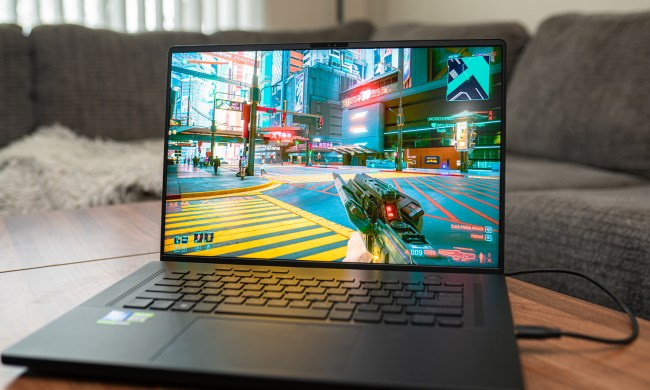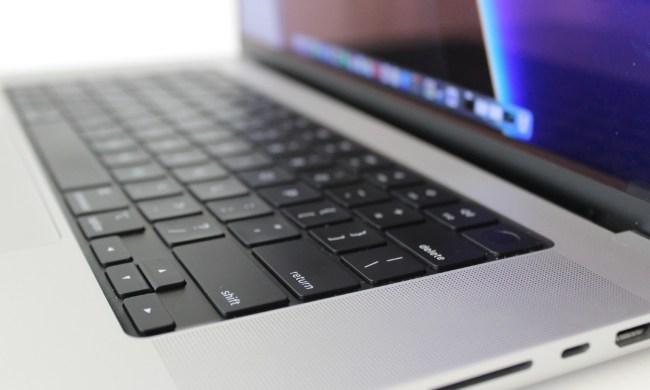Earlier today, Asus unveiled the Zenbook, a Windows 7 laptop following Intel’s new Ultrabook specifications, meaning its quite thin, has a sub-$1,000 price point, has a fast-booting solid-state drive (SSD), and looks a lot like a MacBook Air.
In its presentation today, Asus ran with the Zen theme, explaining in detail how the Zenbook is like “love at first sight” and how it’s the perfect balance between beauty and performance. Before the presentation even began, an interpretive dancer took the stage and elegantly moved around to classical music. As Asus chairman Jonney Shih took the stage, the first thing he did was pay tribute to Steve Jobs, who passed away last week. After a moment of silence, Jonney did what all companies try to do these days: unveiled his new Zenbook in a very Steve Jobs-ish manner. Fitting, since the thin, aluminum laptop is obviously inspired by Cuppertino’s MacBookAir line.
After the presentation, we got some hands-on time with the units. Asus claims that the Zenbook is faster and gets better battery life than the MacBook Air. We can’t verify that, but it’s response time was pretty impressive. It seemed to resume from sleep about as fast as Asus’s claim of 2 seconds, though boot time from shut down is still 30 to 40 seconds. The screen of the Zenbook, as thin as it is, feels a lot firmer than some of the non-aluminum models like Toshiba’s Ultrabook, which is made of a magnesium alloy.
As far as ports, the left side of the Zenbook has a USB 3.0 port, an audio jack, and a SD card reader; the right side has another USB port, an external monitor port, mini HDMI, and an charging port. That’s it. Asus will include an adapter with the Zenbook, which should add some more connections to the laptop.
The feel of the island-style keyboard was a bit flat. It will take time to get used to the shallow keys, but that is the sacrifice for having something so thin. All of the basic keyboard functions seem to be present and the clamshell opens almost as elegantly as a Mac (almost). All this Ultrabook really needs is a touchscreen and Windows 8 and we might be talking. Around this time next year, we might see a laptop like that.
Overall, we look forward to playing with the Zenbook more, but with a 11.6-inch (or 13-inch) screen, full SSD drive, 4 to 7 hours of battery life, and up to 2 weeks of standby time, it’s definitely a competitive offering. What remains to be seen is if consumers are really into Ultrabooks as much as Intel hopes they will be.


